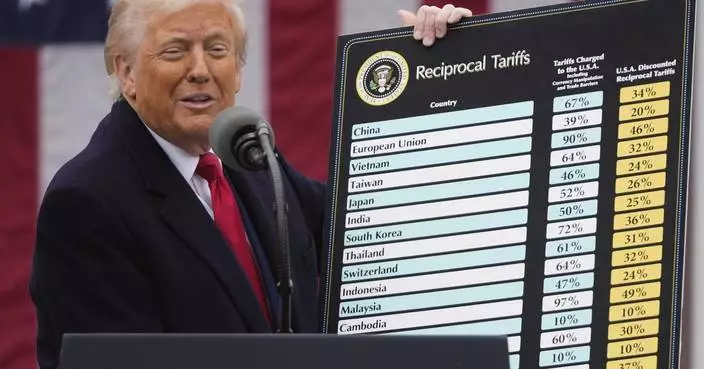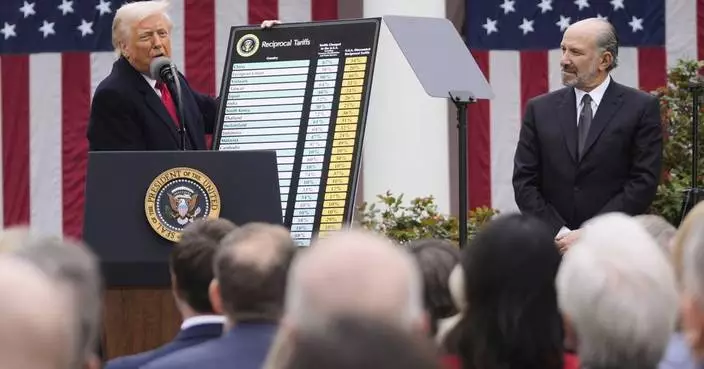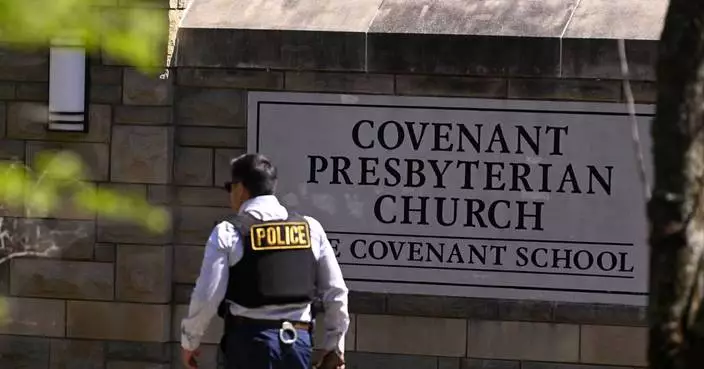WASHINGTON (AP) — U.S. Rep. Nancy Mace’s Republican primary victory in South Carolina on Tuesday was powered by a strong performance in vote-rich Charleston County, as well as in two key counties she lost in her 2022 primary bid, according to an Associated Press analysis of initial vote results.
Mace’s reelection battle has drawn attention from national Republican leaders in part for her role in ousting Rep. Kevin McCarthy as Speaker of the House in 2023.
Here’s a look at how the AP determined Mace would avoid a runoff and win her party’s nomination for another term in Congress:
CANDIDATES: Mace, Catherine Templeton, William Young
WINNER: Mace
CALLED AT: 8:40 p.m. ET
POLL CLOSING TIME: 7 p.m. ET
ABOUT THE RACE: Mace is running for a third term in this district based in the state’s Lowcountry along the Atlantic coastline near Charleston. In 2023, she was one of eight U.S. House Republicans to break with the party in the vote to remove McCarthy. Since then, the former speaker has thrown the weight of his political operation and fundraising prowess against the defectors and has backed their primary challengers, including Templeton, who previously served as director of the state’s labor agency under then-Gov. Nikki Haley. Templeton’s supporters included former Speaker Newt Gingrich and U.S. Rep. Joe Wilson of the nearby 2nd Congressional District. Mace had the backing of former President Donald Trump and current Speaker Mike Johnson.
WHY AP CALLED THE RACE: Mace took an early lead after polls closed among votes cast before election day, which typically are the first votes to be counted. In particular, she had a sizable lead in her home county of Berkeley, as well as in Dorchester and Jasper counties, all of which she lost in her 2022 primary, and in Charleston County, which was her best-performing area two years ago.
As the vote counting continued, Mace maintained her leads in Berkeley, Charleston and Dorchester, while Templeton took the lead in Jasper, which is the smallest jurisdiction in the district, contributing fewer than 900 votes in the 2022 primary. Mace’s share of the vote in Berkeley and Dorchester outperformed her 2022 primary vote share in those counties by more than 10 percentage points.
The last county to report results was Beaufort. The initial results there had Mace ahead of Templeton but with less than 50% of the vote, slightly behind the pace of her 2022 primary performance.
At the time the AP declared her the winner, Mace’s share of the districtwide vote was at about 58% with just under a third of the estimated vote counted, putting her beyond the risk of dipping below the 50% mark and forcing a runoff. By comparison, she won her 2022 primary with 53% of the vote. Mace was ahead of Templeton among both pre-election day advance votes as well as among votes cast on election day. She had a bigger lead among votes cast on election day, which would only help maintain or build her lead as more election day votes are tabulated.
Templeton was at about 31% of the vote at the time the AP called the race. With Young siphoning off about 14% percent of the vote, Templeton would have needed to beat Mace among votes yet to be tallied by about 15 percentage points, an unrealistic goal given her vote share.

Why AP called Rep. Nancy Mace the winner in the South Carolina U.S. House Republican primary

Why AP called Rep. Nancy Mace the winner in the South Carolina U.S. House Republican primary

FILE - Rep. Nancy Mace, walks to join other members of the House Oversight Committee, Dec. 13, 2023, at the Capitol in Washington. Three Republican incumbent U.S. House members in South Carolina are facing primary challengers in 2024, including Mace, who is seeking a third term with the backing of Donald Trump. (AP Photo/J. Scott Applewhite, File)
SRINAGAR, India (AP) — The Lower House of India's parliament early Thursday passed a controversial bill moved by Prime Minister Narendra Modi’s Hindu nationalist government to amend laws governing Muslim land endowments.
The bill would add non-Muslims to boards that manage waqf land endowments and give the government a larger role in validating their land holdings. The government says the changes will help to fight corruption and mismanagement while promoting diversity, but critics fear that it will further undermine the rights of the country’s Muslim minority and could be used to confiscate historic mosques and other property.
As hourslong debate in the Lower House grew heated as the Congress-led opposition firmly opposed the proposal, calling it unconstitutional and discriminatory against Muslims. Modi’s ruling Bharatiya Janata Party lacks a majority in the Lower House, but its allies helped to pass the bill.
The debate that began Wednesday ended with 288 members voting for the bill while 232 were against it early Thursday. The bill will now need to clear the Upper House before it is sent to President Droupadi Murmu for her assent to become law.
Later Thursday, lawmakers in the Upper House began debating the bill. At least eight hours have been set aside for discussion.
Minority Affairs Minister Kiren Rijiju introduced the bill to change a 1995 law that set rules for the foundations and set up state-level boards to administer them.
Many Muslim groups as well as the opposition parties say the proposal is discriminatory, politically motivated and an attempt by Modi’s ruling party to weaken minority rights.
The bill was first introduced in parliament last year, and opposition leaders have said some of their subsequent proposals on it were ignored. The government has said opposition parties are using rumors to discredit them and block transparency in managing the endowments.
Waqfs are a traditional type of Islamic charitable foundation in which a donor permanently sets aside property — often but not always real estate — for religious or charitable purposes. Waqf properties cannot be sold or transferred.
Waqfs in India control 872,000 properties that cover 405,000 hectares (1 million acres) of land, worth an estimated $14.22 billion. Some of these endowments date back centuries, and many are used for mosques, seminaries, graveyards and orphanages.
In India, waqf property is managed by semi-official boards, one for each state and federally run union territory. The law would require non-Muslims to be appointed to the boards.
Currently, waqf boards are staffed by Muslims, like similar bodies that help administer other religious charities.
During the parliamentary debate, Home Minister Amit Shah said non-Muslims would be included in waqf boards only for administration purposes and helping run the endowments smoothly. He added that they were not there to interfere in religious affairs.
“The (non-Muslim) members will monitor whether the administration is running as per law or not, and whether the donations are being used for what they were intended or not,” he said.
One of the most controversial changes is to ownership rules, which could impact historical mosques, shrines and graveyards since many such properties lack formal documentation as they were donated without legal records decades, and even centuries, ago.
Other changes could impact mosques on land held in centuries-old waqfs.
Radical Hindu groups have laid claim to several mosques around India, arguing they are built on the ruins of important Hindu temples. Many such cases are pending in courts.
The law would require waqf boards to seek approval from a district level officer to confirm the waqfs’ claims to property.
Critics say that would undermine the board and could lead to Muslims being stripped of their land. It’s not clear how often the boards would be asked to confirm such claims to land.
“The Waqf (Amendment) Bill is a weapon aimed at marginalising Muslims and usurping their personal laws and property rights,” Rahul Gandhi, the main opposition leader, wrote on social media platform X. He said the bill was an “attack on the Constitution” by the BJP and its allies “aimed at Muslims today but sets a precedent to target other communities in the future.”
While many Muslims agree that waqfs suffer from corruption, encroachments and poor management, they also fear that the new law could give India’s Hindu nationalist government far greater control over Muslim properties, particularly at a time when attacks against minority communities have become more aggressive under Modi, with Muslims often targeted for everything from their food and clothing styles to inter-religious marriages.
Last month, the U.S. Commission on International Religious Freedom said in its annual report that religious freedom conditions in India continued to deteriorate while Modi and his party “propagated hateful rhetoric and disinformation against Muslims and other religious minorities” during last year’s election campaign.
Modi’s government says India is run on democratic principles of equality and no discrimination exists in the country.
Muslims, who are 14% of India’s 1.4 billion population, are the largest minority group in the Hindu-majority nation but they are also the poorest, a 2013 government survey found.
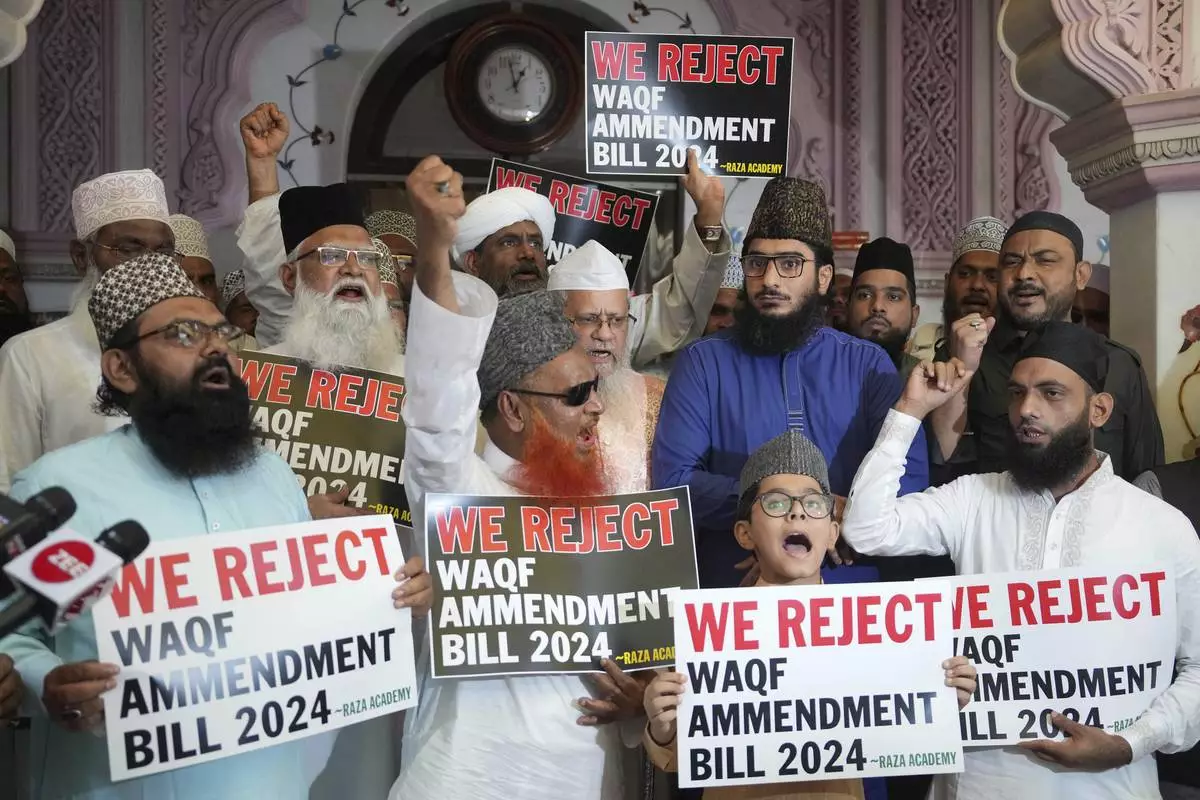
Raza Academy members shout slogans in Mumbai, India, to condemn the Waqf amendment bill that was passed early Thursday by the Lower House of India's parliament, Thursday, April 3, 2025. (AP Photo/Rajanish Kakade)
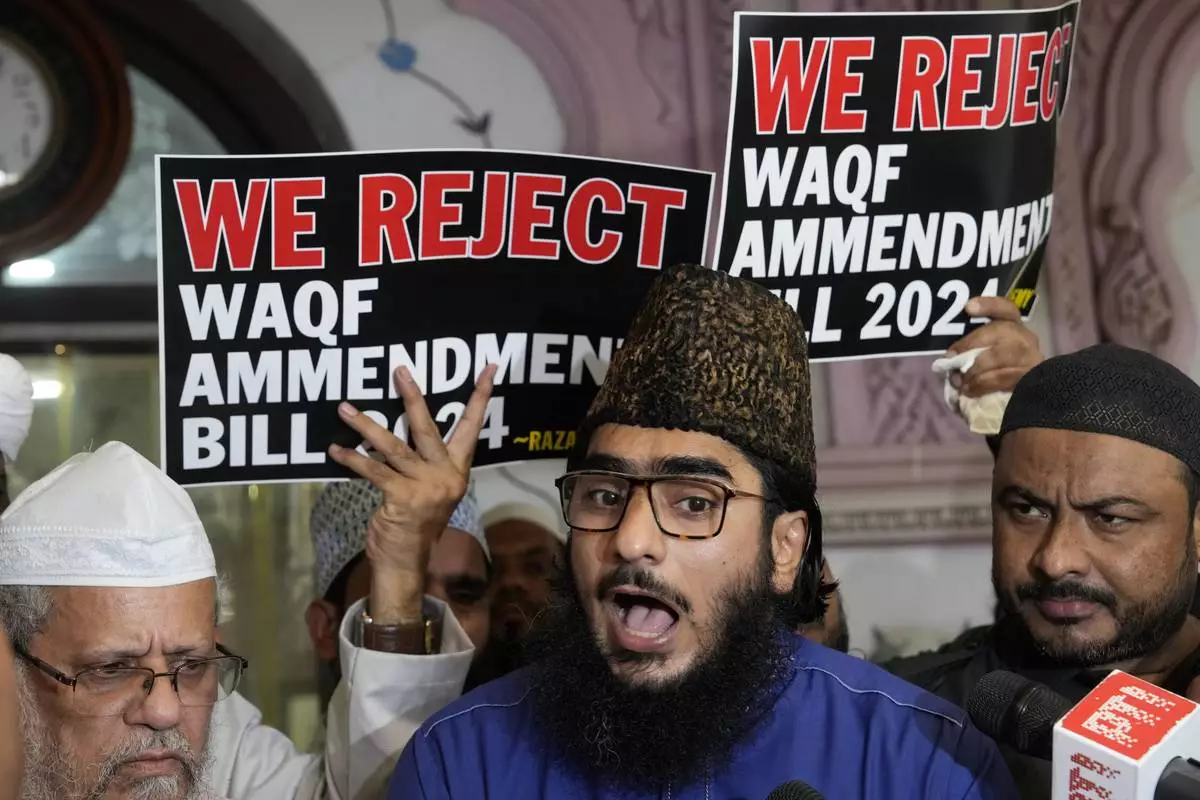
Raza Academy members shout slogans in Mumbai, India, to condemn the Waqf amendment bill that was passed early Thursday by the Lower House of India's parliament, Thursday, April 3, 2025. (AP Photo/Rajanish Kakade)
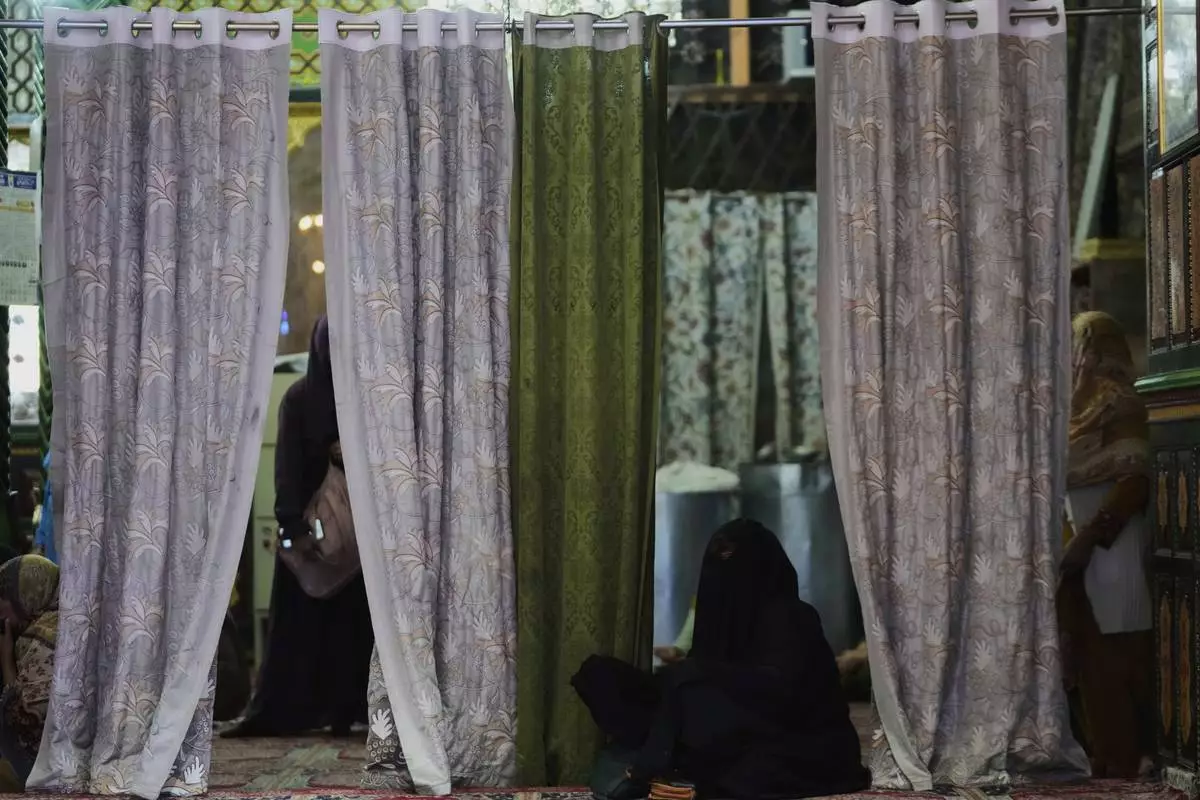
A Kashmiri Muslim woman prays inside the shrine of Sheikh Abdul Qadir Jeelani, commonly known as Dastageer Sahib, in Srinagar, Indian controlled Kashmir, Wednesday, April 2, 2025. (AP Photo/Mukhtar Khan)
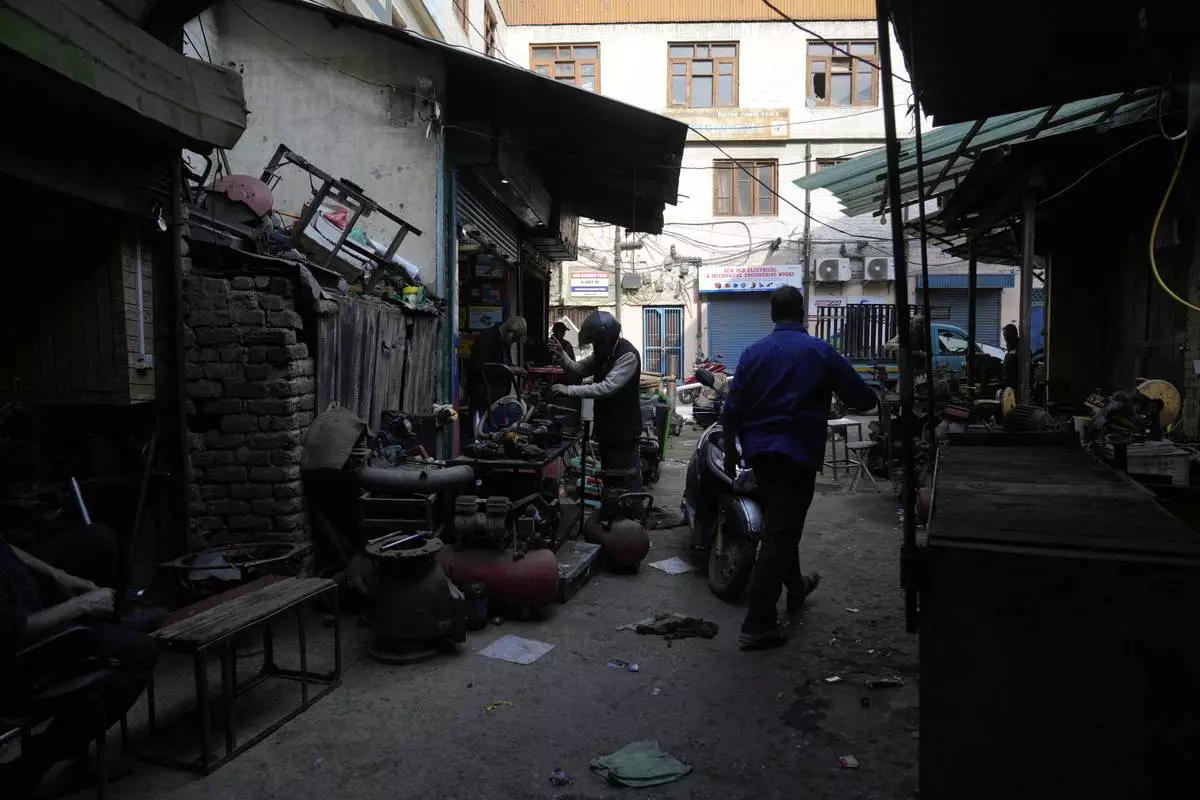
A Kashmiri man repairs a generator inside the Auqaf Market in Srinagar, Indian controlled Kashmir, Wednesday, April 2, 2025. (AP Photo/Mukhtar Khan)
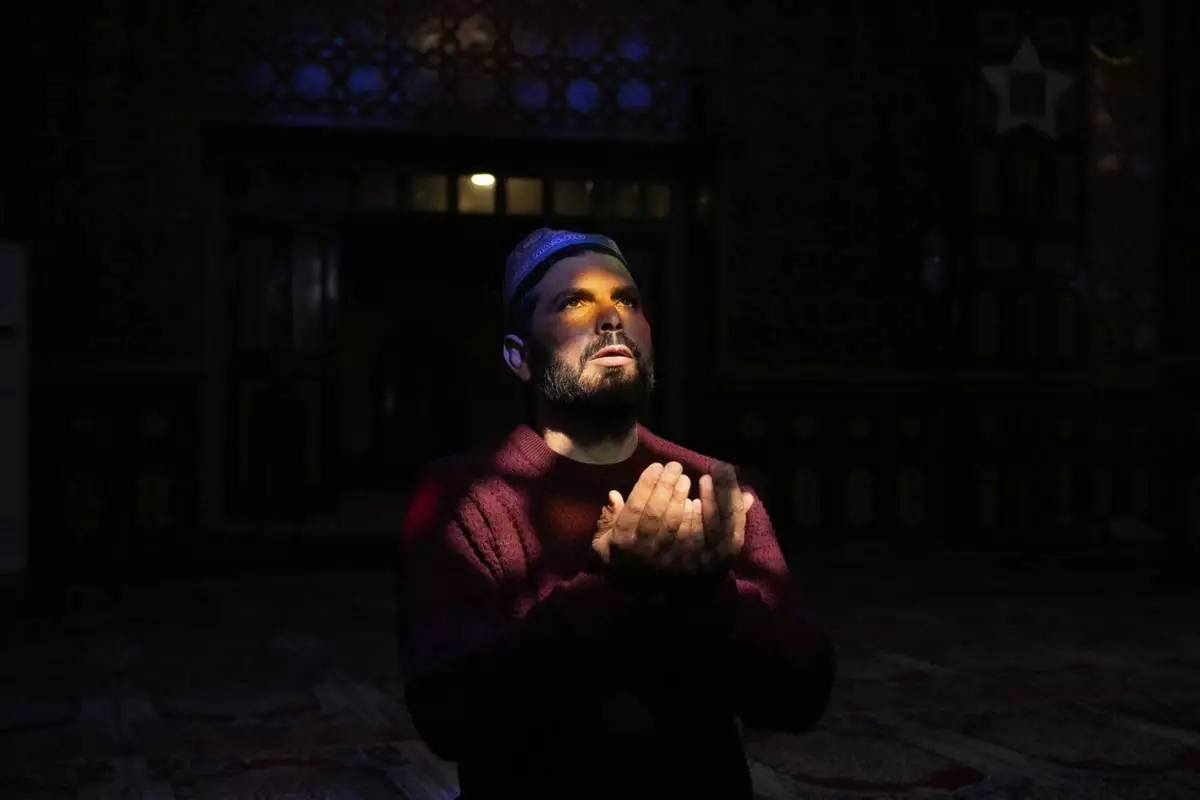
A Kashmiri Muslim man prays inside the shrine of Sheikh Abdul Qadir Jeelani, commonly known as Dastageer Sahib, in Srinagar, Indian controlled Kashmir, Wednesday, April 2, 2025. (AP Photo/Mukhtar Khan)
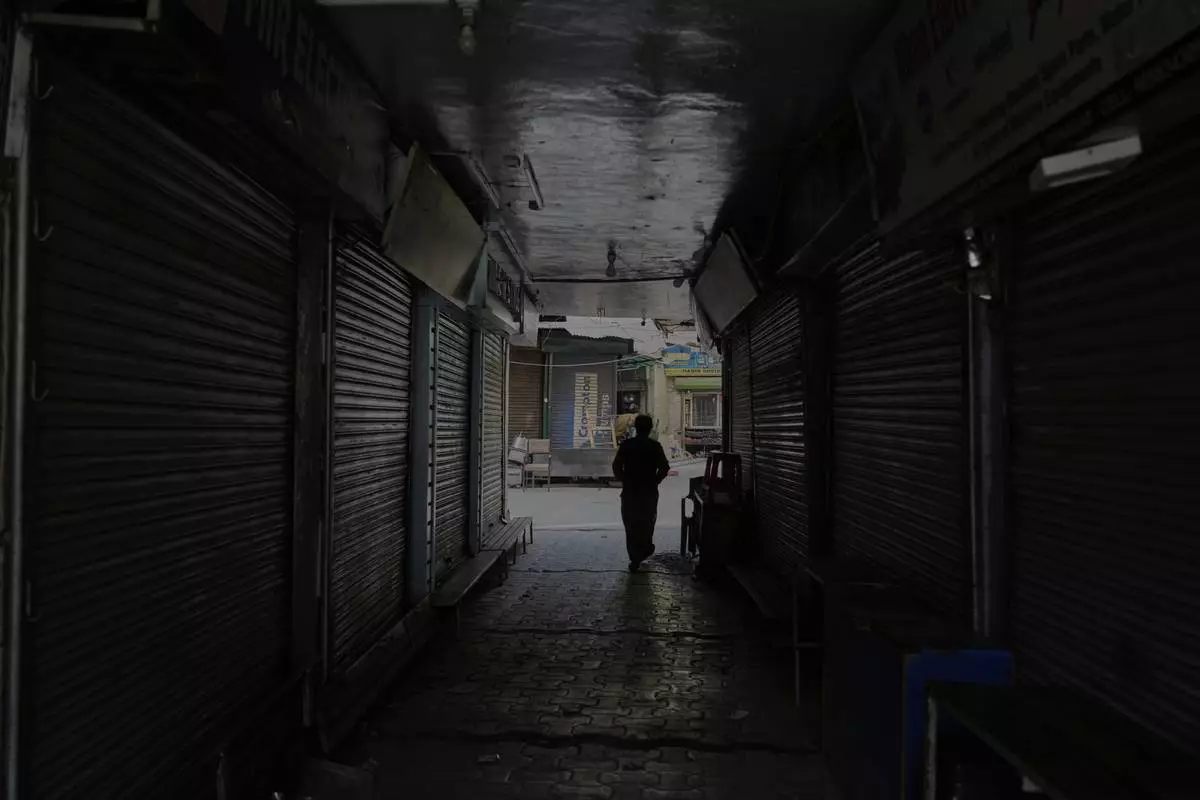
A Kashmiri man walks inside the Auqaf Market in Srinagar, Indian controlled Kashmir, Wednesday, April 2, 2025. (AP Photo/Mukhtar Khan)
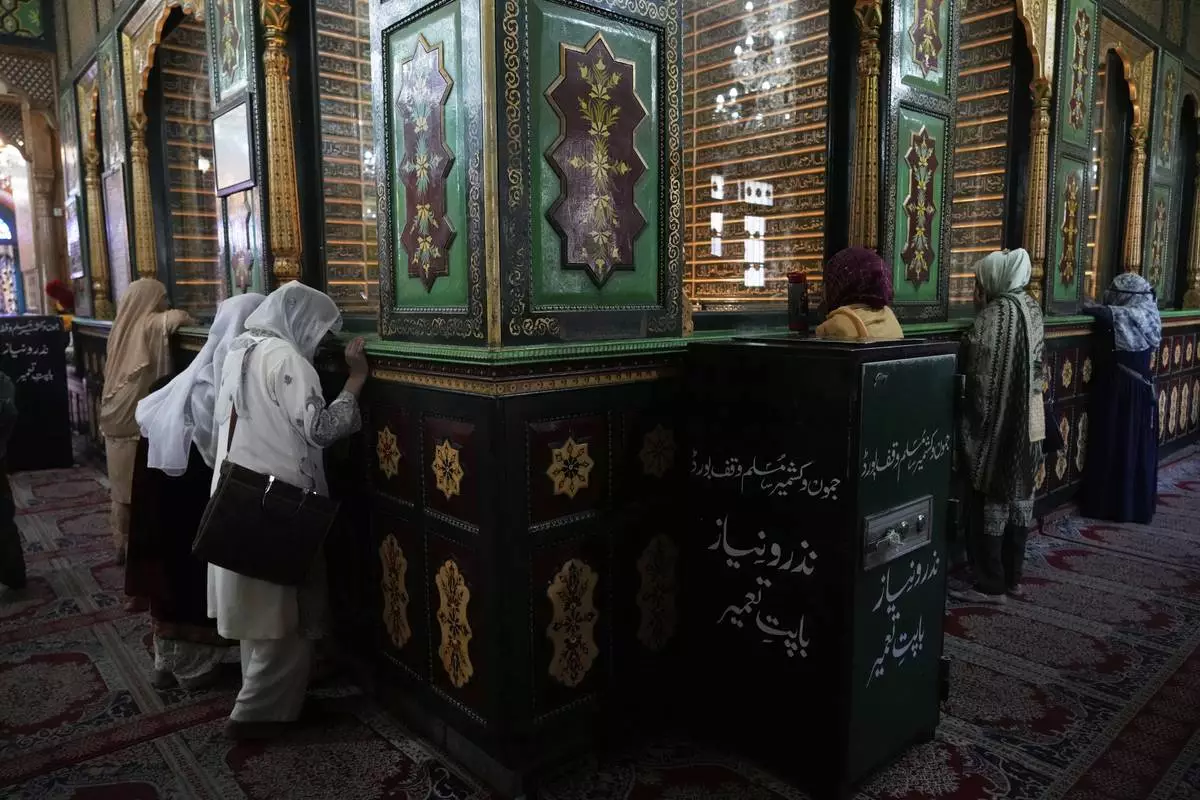
Kashmiri Muslims pray inside the shrine of Sheikh Abdul Qadir Jeelani, commonly known as Dastageer Sahib, in Srinagar, Indian controlled Kashmir, Wednesday, April 2, 2025. (AP Photo/Mukhtar Khan)
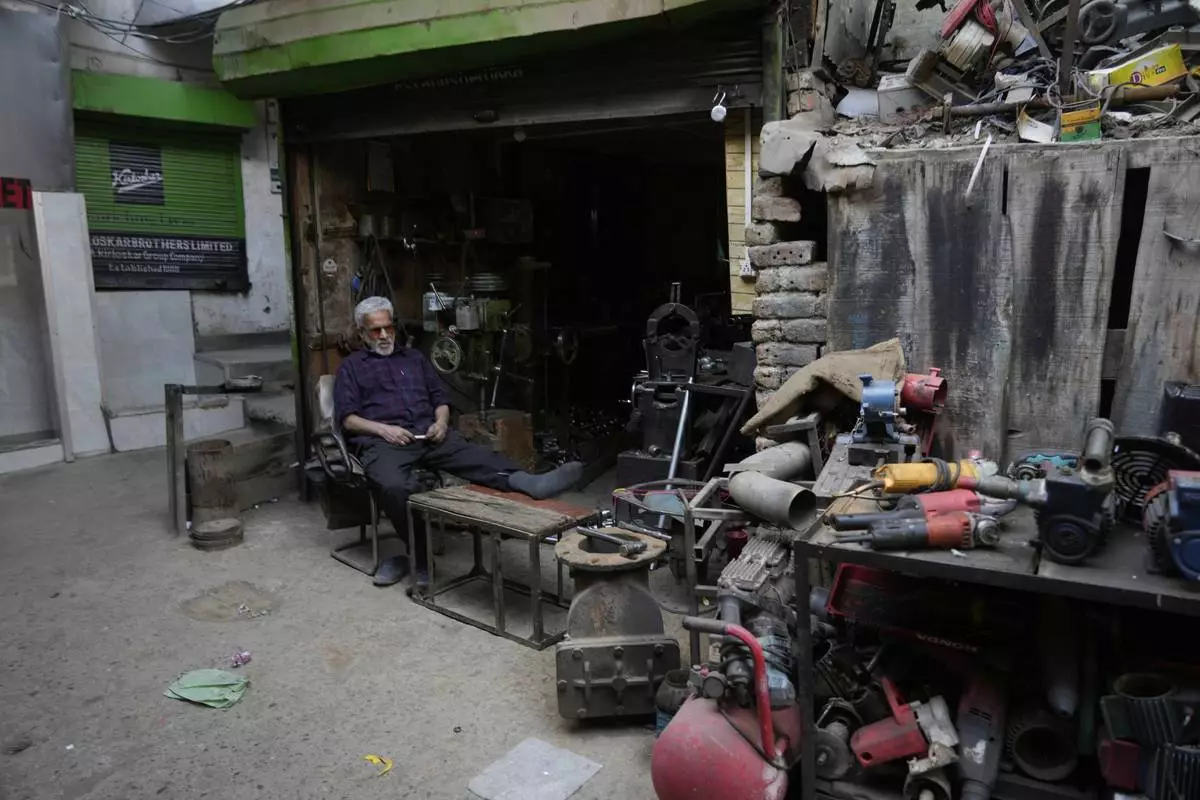
Bashir Ahmad, a Kashmiri shopkeeper, rests at his shop inside the Auqaf Market in Srinagar, Indian controlled Kashmir, Wednesday, April 2, 2025. (AP Photo/Mukhtar Khan)
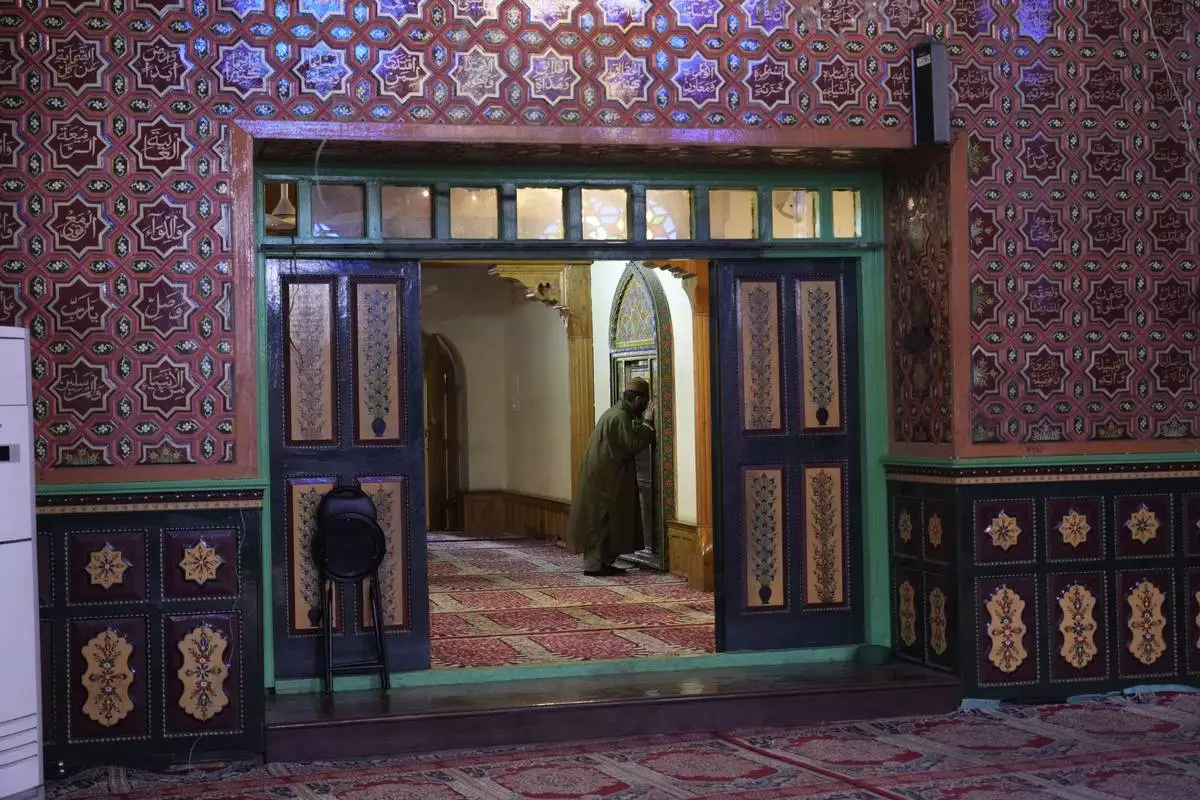
A Kashmiri Muslim man prays inside the shrine of Sheikh Abdul Qadir Jeelani, commonly known as Dastageer Sahib, in Srinagar, Indian controlled Kashmir, Wednesday, April 2, 2025. (AP Photo/Mukhtar Khan)
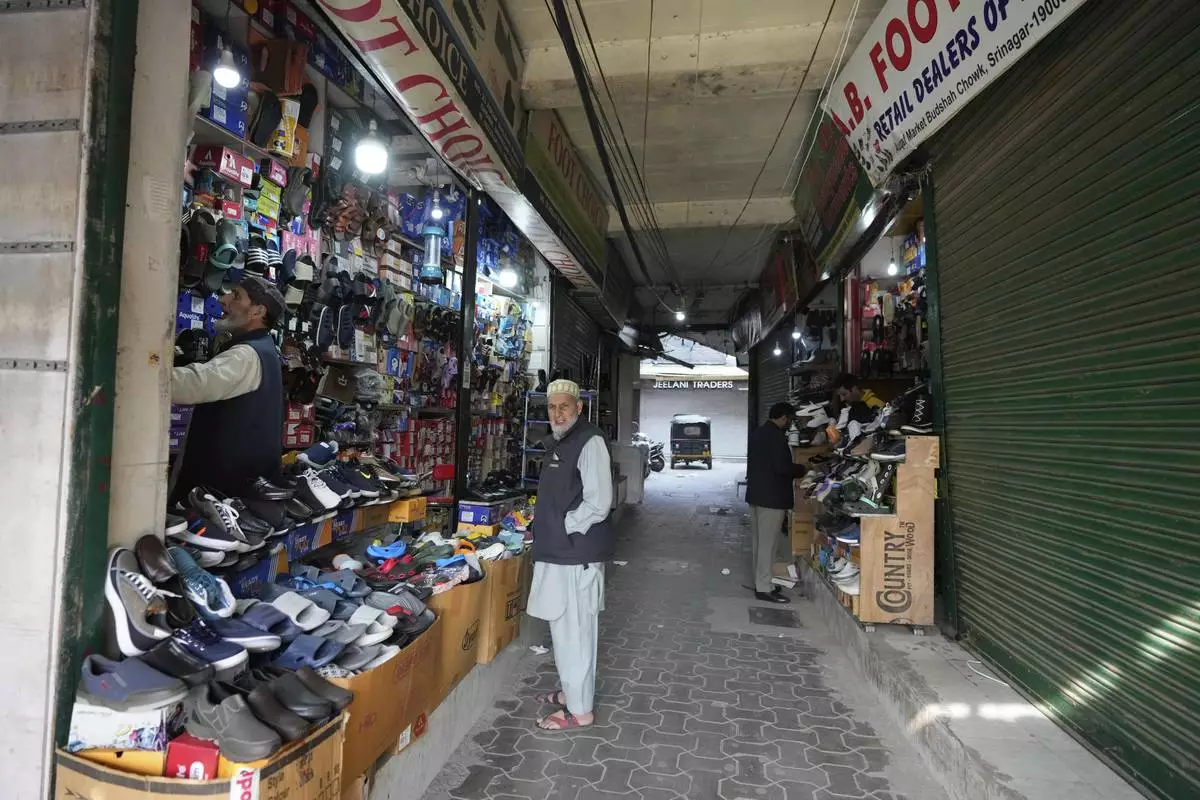
Kashmiri men purchase shoes inside the Auqaf Market in Srinagar, Indian controlled Kashmir, Wednesday, April 2, 2025. (AP Photo/Mukhtar Khan)
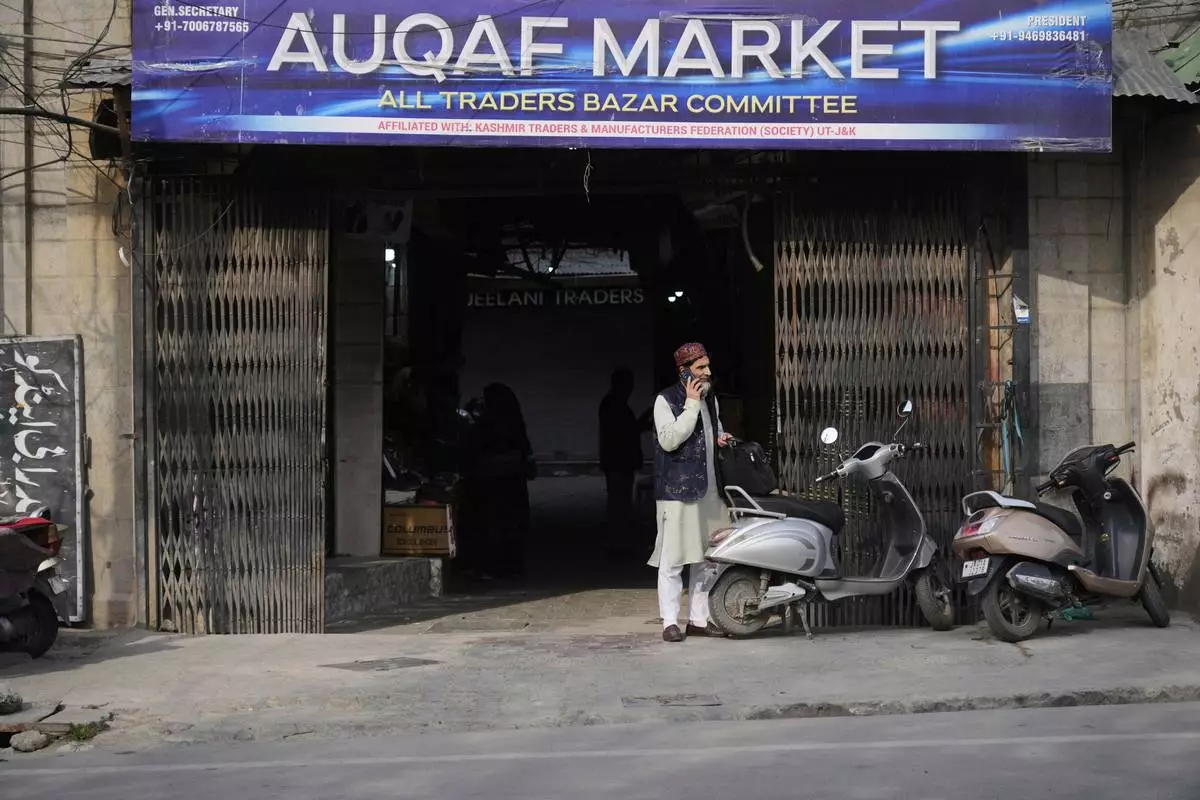
An elderly Kashmiri man talks on his cell phone outside the Auqaf Market in Srinagar, Indian controlled Kashmir, Wednesday, April 2, 2025. (AP Photo/Mukhtar Khan)
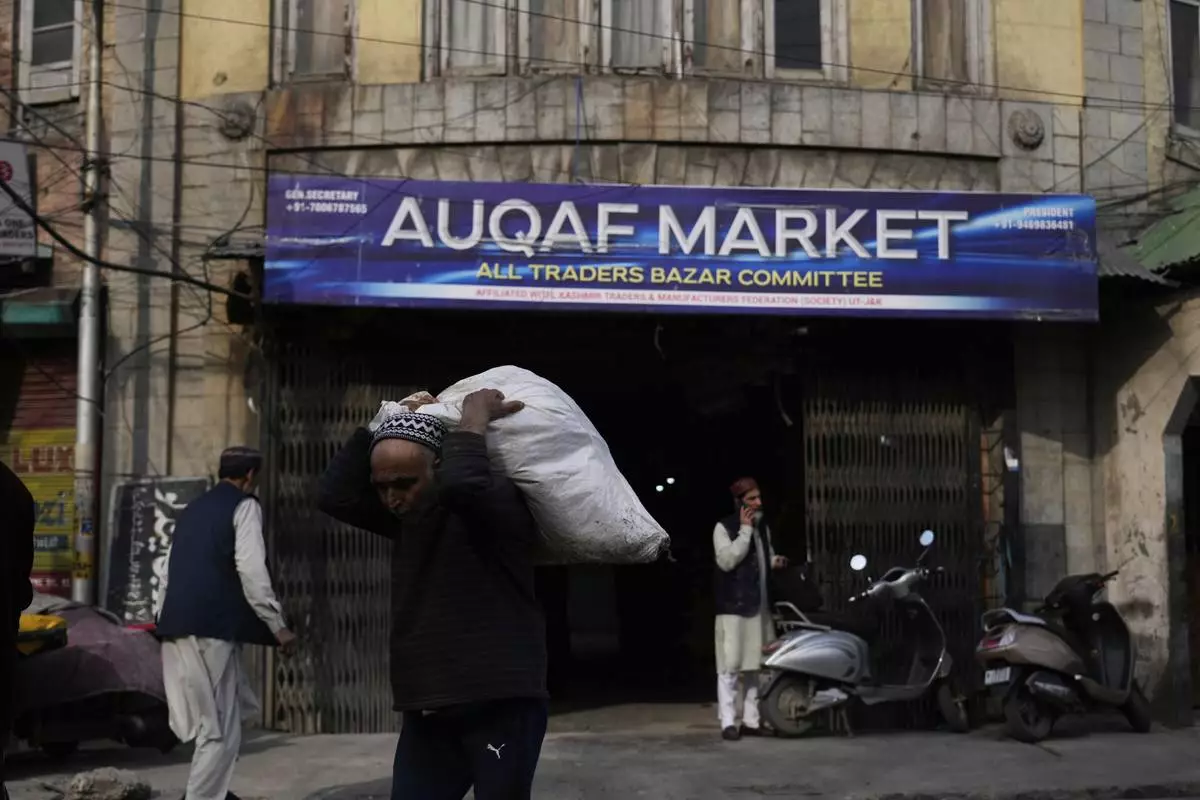
An elderly Kashmiri man carries a plastic sack filled with fabric as he walks outside the Auqaf Market in Srinagar, Indian controlled Kashmir, Wednesday, April 2, 2025. (AP Photo/Mukhtar Khan)
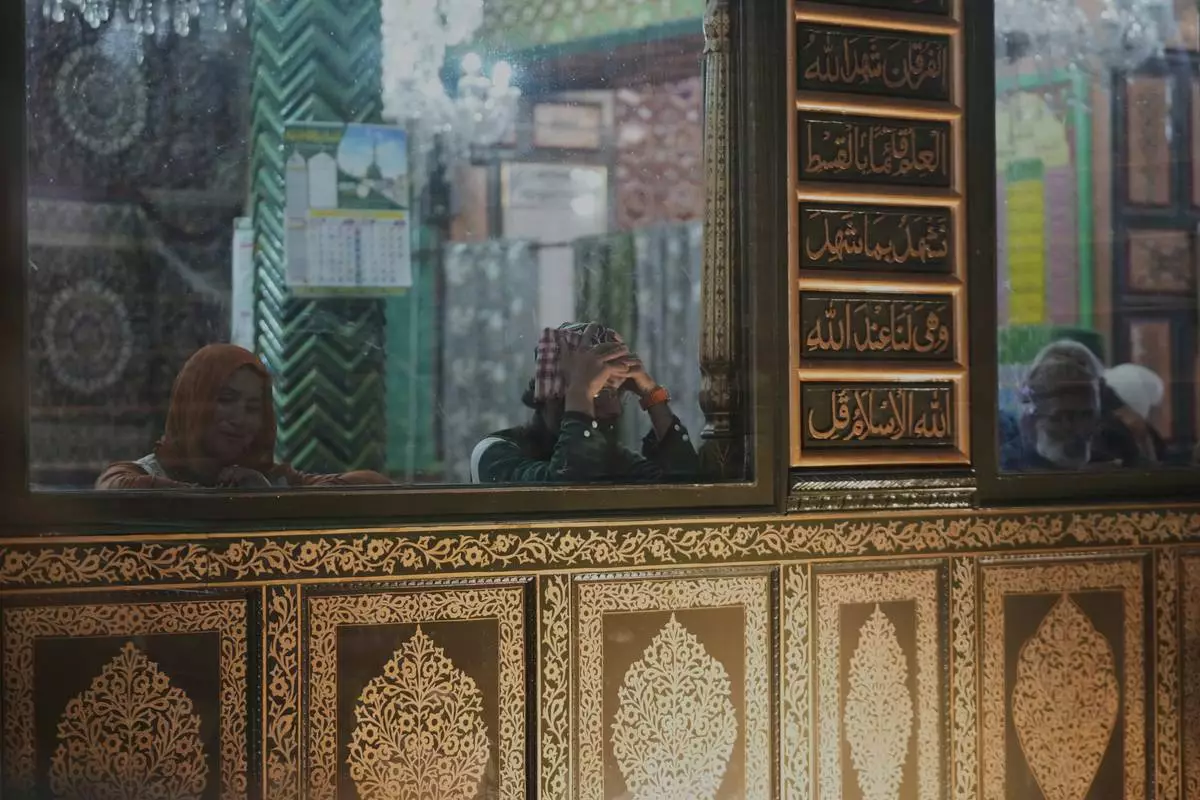
Kashmiri Muslims pray inside the shrine of Sheikh Abdul Qadir Jeelani, commonly known as Dastageer Sahib, in Srinagar, Indian controlled Kashmir, Wednesday, April 2, 2025. (AP Photo/Mukhtar Khan)

A man looks from a window near the Auqaf Market in Srinagar, Indian controlled Kashmir, Wednesday, April 2, 2025. (AP Photo/Mukhtar Khan)
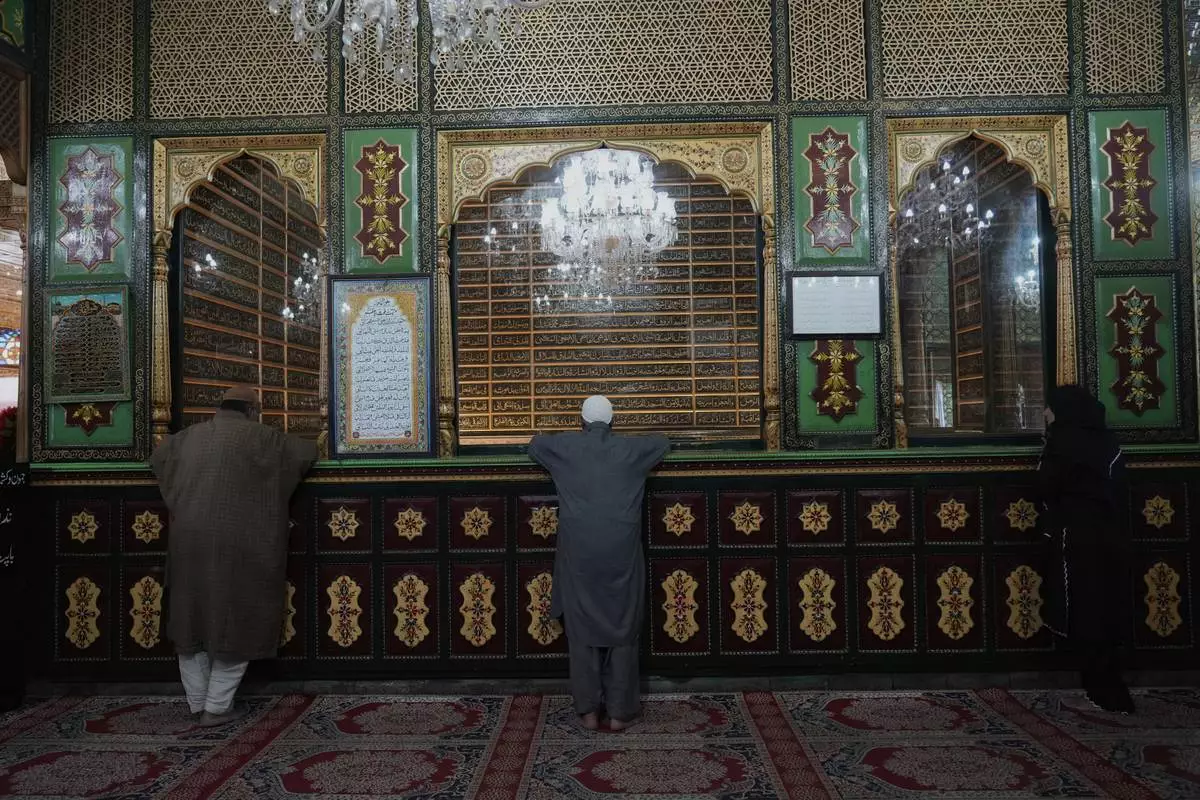
Kashmiri Muslims pray inside the shrine of Sheikh Abdul Qadir Jeelani, commonly known as Dastageer Sahib, in Srinagar, Indian controlled Kashmir, Wednesday, April 2, 2025. (AP Photo/Mukhtar Khan)
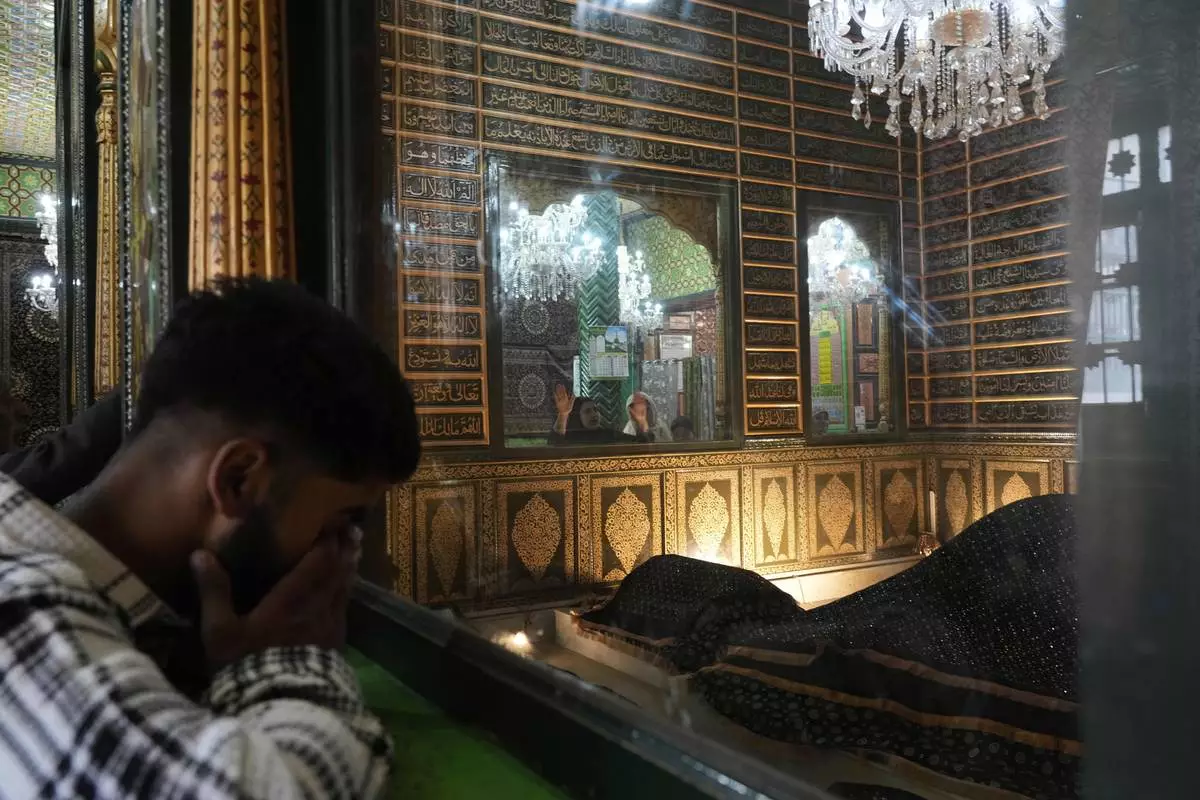
Kashmiri Muslims pray inside the shrine of Sheikh Abdul Qadir Jeelani, commonly known as Dastageer Sahib, in Srinagar, Indian controlled Kashmir, Wednesday, April 2, 2025. (AP Photo/Mukhtar Khan)
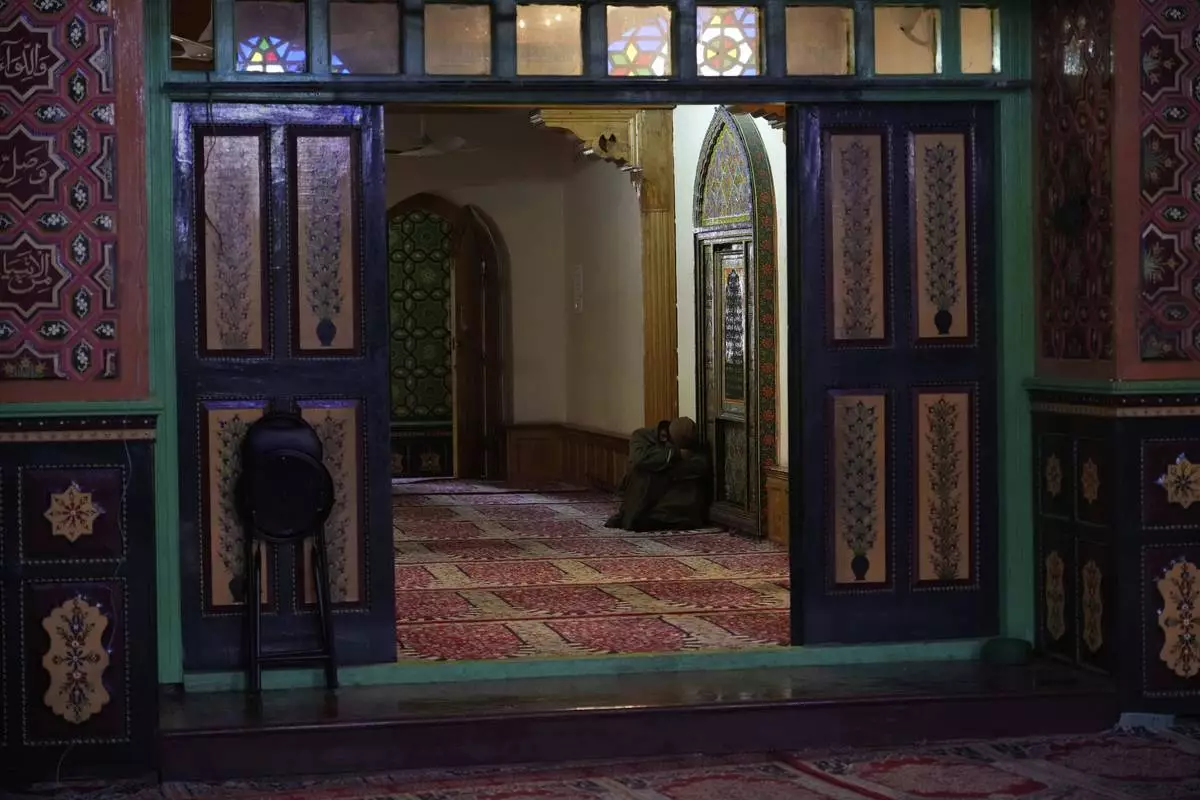
A Kashmiri Muslim man prays inside the shrine of Sheikh Abdul Qadir Jeelani, commonly known as Dastageer Sahib, in Srinagar, Indian controlled Kashmir, Wednesday, April 2, 2025. (AP Photo/Mukhtar Khan)
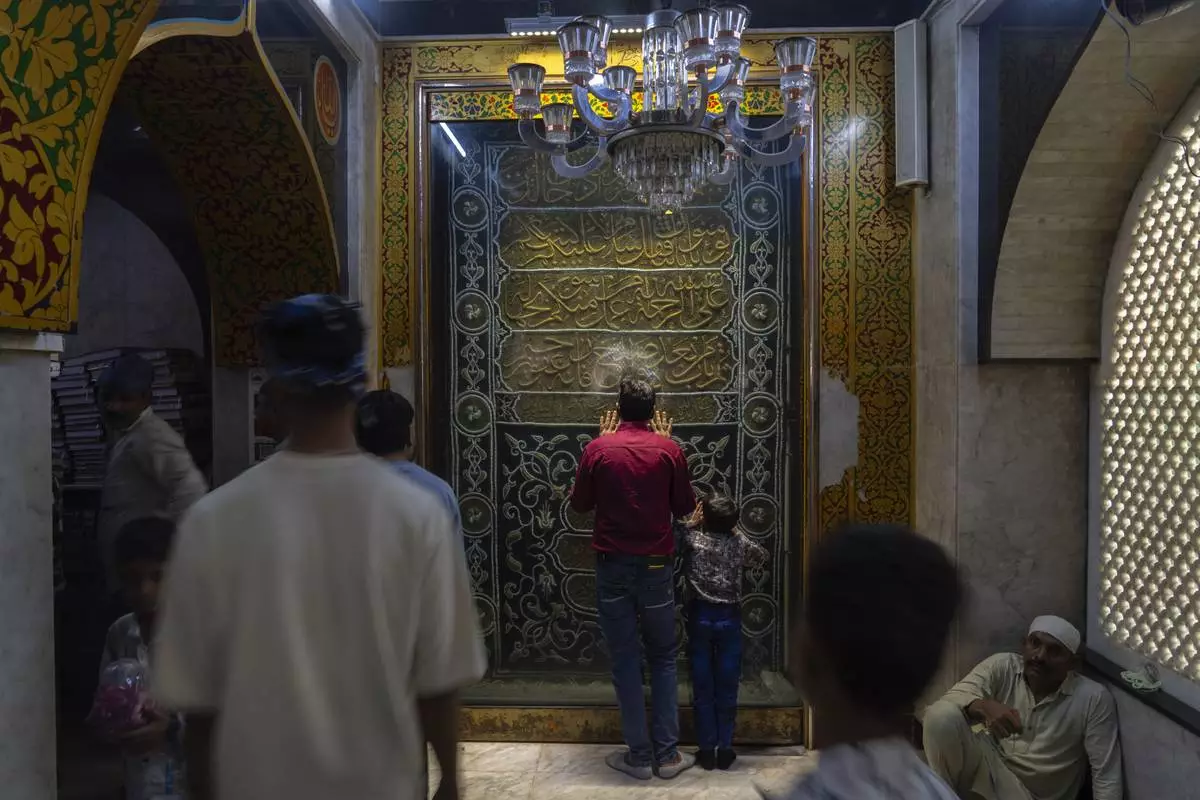
A Muslim man offers prayers at Mahim Dargah, a Muslim shrine in Mumbai, India, Wednesday, April 2, 2025. (AP Photo/Rafiq Maqbool)
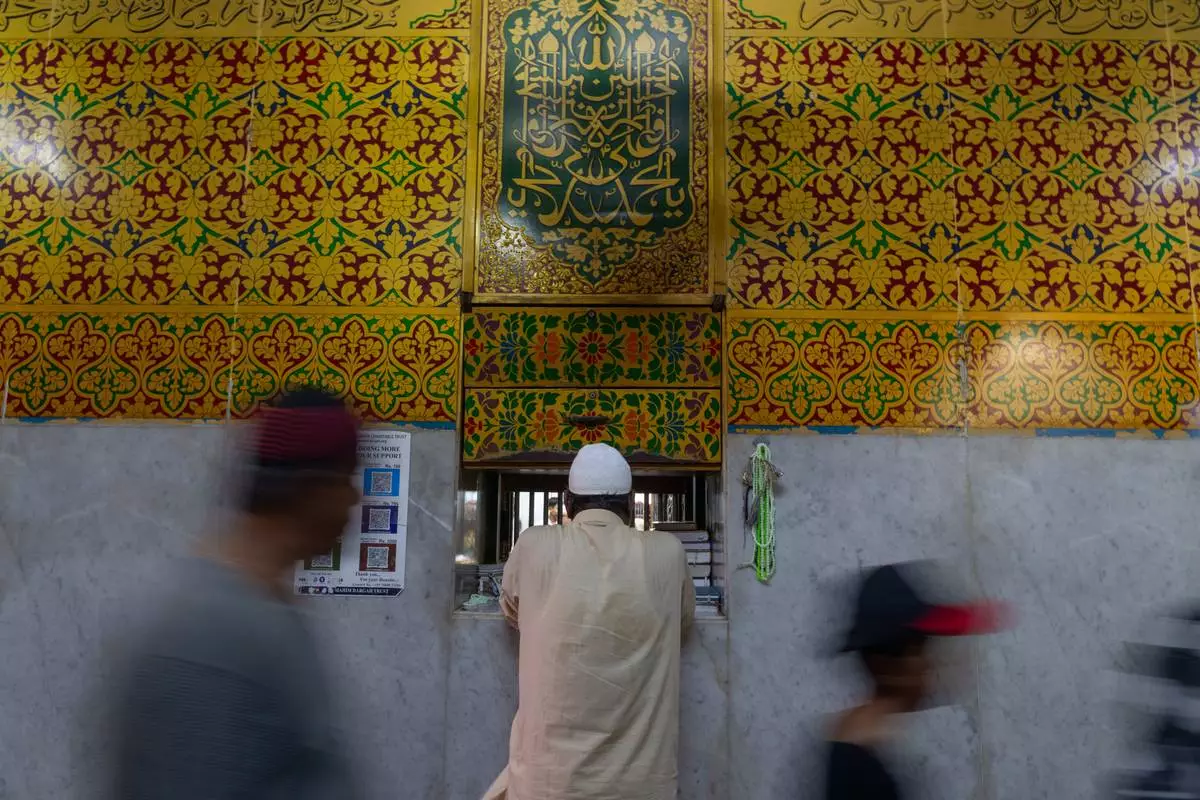
A Muslim man offers prayers at Mahim Dargah, a Muslim shrine in Mumbai, India, Wednesday, April 2, 2025. (AP Photo/Rafiq Maqbool)

People arrive to offer prayers at Haji Ali Dargah, a Muslim shrine by the Arabian Sea coast in Mumbai, India, Wednesday, April 2, 2025. (AP Photo/Rafiq Maqbool)

People arrive to offer prayers at Haji Ali Dargah, a Muslim shrine by the Arabian Sea coast in Mumbai, India, Wednesday, April 2, 2025. (AP Photo/Rafiq Maqbool)
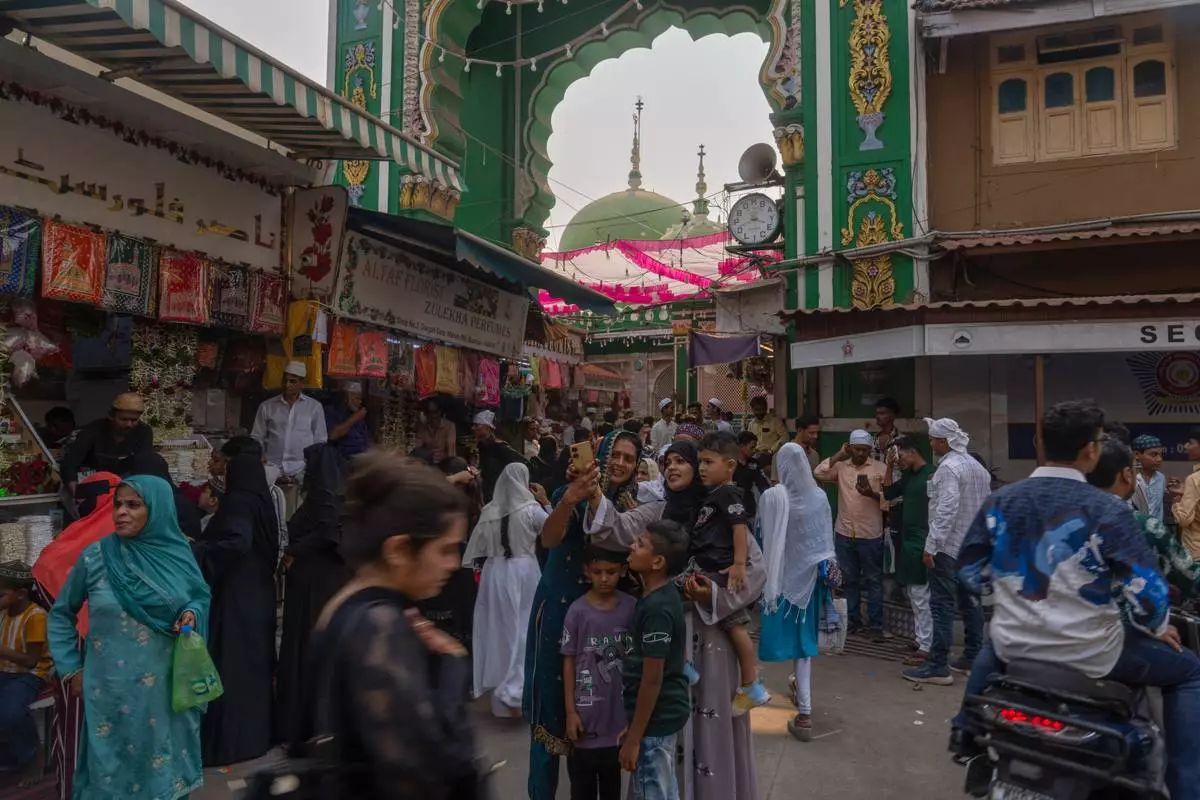
Muslims leave after offering prayers at Mahim Dargah, a Muslim shrine in Mumbai, India, Wednesday, April 2, 2025. (AP Photo/Rafiq Maqbool)
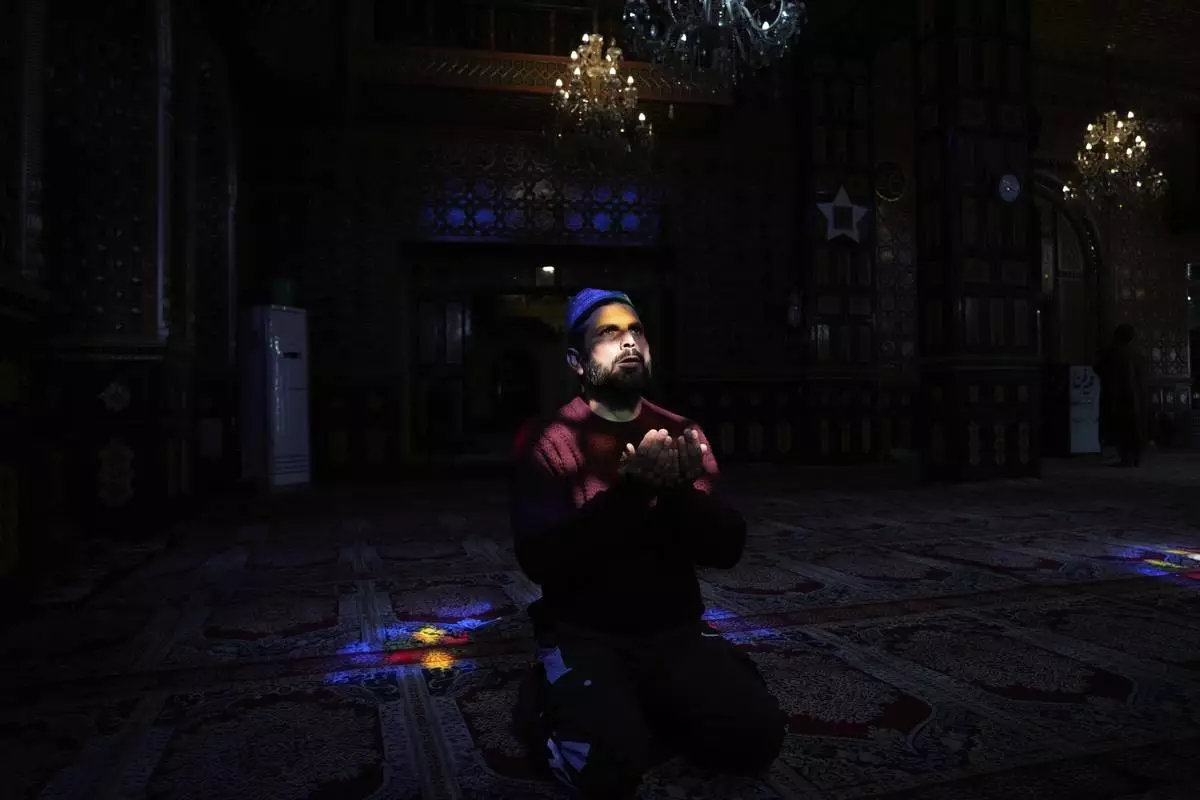
A Kashmiri Muslim man prays inside the shrine of Sheikh Abdul Qadir Jeelani, commonly known as Dastageer Sahib, in Srinagar, Indian controlled Kashmir, Wednesday, April 2, 2025. (AP Photo/Mukhtar Khan)





























